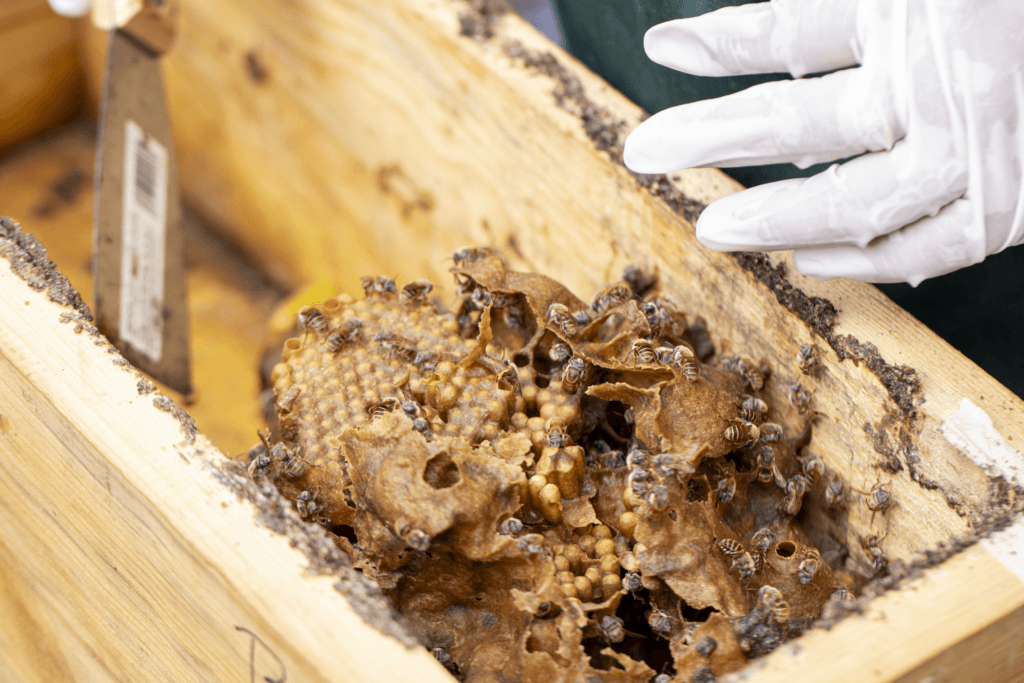The eastern Yucatán Peninsula, a region steeped in history and biodiversity, is facing a growing environmental crisis. Local beekeepers are raising alarm over the devastating effects of deforestation, agrochemical use, and climate change on the native melipona bee population—a species crucial to the ecological and cultural fabric of the region.
The Melipona Bee: A Cornerstone of Yucatán’s Ecology and Culture
The melipona bee, also known as the stingless bee, has been integral to the Yucatán for centuries. Unlike European honeybees, meliponas are smaller and lack stingers, making them gentle and highly specialized pollinators. Their honey, prized for its medicinal properties and unique flavor, has been used by the Maya for generations in traditional medicine, rituals, and as a trade commodity.
These bees are keystone species, meaning their role in the ecosystem disproportionately affects biodiversity. By pollinating native plants and crops, they maintain the health of tropical forests and support agricultural livelihoods. Their cultural and ecological significance makes their survival a matter of urgency.
According to Mario Navarro Meneses, a meliponiculturist and representative of the Miel Nativa Kaban association, the situation for melipona bees is dire. By the end of 2024, the region saw the loss of hundreds of melipona beehives due to a combination of extreme heatwaves and unregulated pesticide use. These losses are compounded by extensive deforestation driven by livestock farming, which has decimated the bees’ natural habitats.
Meneses warns that without immediate conservation measures, the melipona could face extinction within five years. This would not only erase a species unique to the Yucatán but also disrupt the ecological balance of the region, with cascading effects on plant life, agriculture, and local communities.

The Impact of Deforestation and Agrochemicals
Moisés Canul, a representative of the Association of Beekeepers of Tizimín, highlights the direct link between honey production and the preservation of natural vegetation. He points to natural disasters, forest fires, and uncontrolled logging as factors that have significantly reduced the availability of flowering plants essential for bees’ survival.
Additionally, the use of agrochemicals such as pesticides and herbicides has proven catastrophic. These substances not only kill bees directly but also contaminate their food sources, weakening colonies and reducing reproduction rates. Canul stresses the urgent need for stricter regulations on chemical use and reforestation efforts to protect these vital pollinators.
Protecting the Melipona Bee
Efforts to save the melipona bee require a multifaceted approach, including:
- Reforestation Projects: Restoring native vegetation is critical to providing the bees with a sustainable food supply and nesting sites.
- Agrochemical Regulation: Enforcing stricter controls on pesticide and herbicide use will reduce direct threats to bee populations.
- Community Education: Raising awareness among farmers and local communities about the importance of melipona bees can foster support for conservation efforts.
- Sustainable Meliponiculture: Expanding initiatives like those led by the Miel Nativa Kaban association can promote traditional beekeeping practices and support rural livelihoods.
The fate of the melipona bee is tied to the future of the Yucatán itself. Protecting these bees safeguards not only biodiversity but also the cultural and economic heritage of the region. Without decisive action, Yucatán risks losing one of its most treasured natural allies, along with the ecological balance they maintain.
Discover more from Riviera Maya News & Events
Subscribe to get the latest posts sent to your email.

